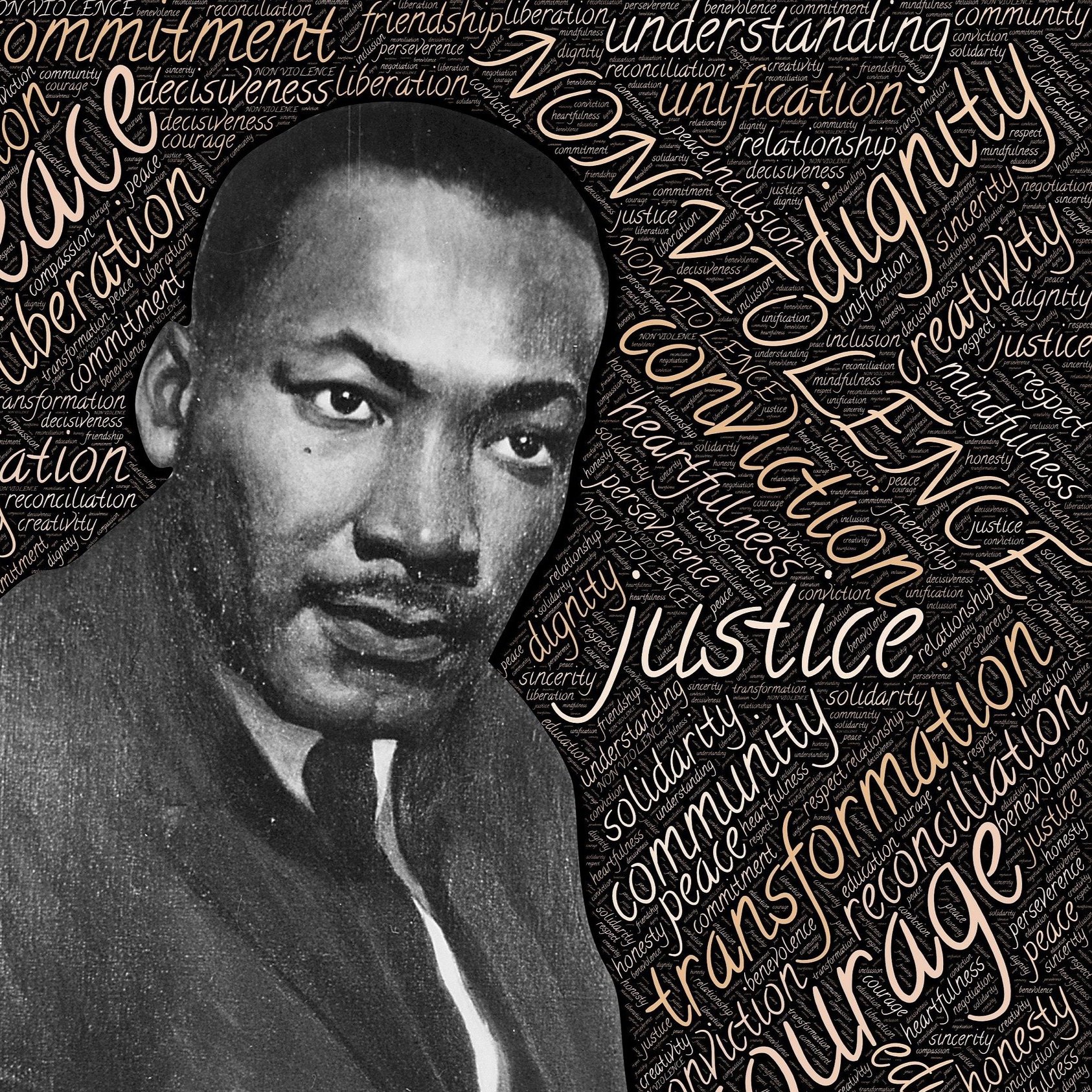Philosophical Life Skills
Founded by TEJI Co-Director Lee Perlman, TEJI’s Philosophical Life Skills program is a series of humanities courses designed to nurture dignity and understanding through blended classes with MIT and incarcerated students. The program is guided by TEJI’s belief in the importance of the art of thinking through fundamental questions regarding the requisites of a good and ethical life — the art of defining your life philosophy and ethical code. Nurturing these “philosophical life skills” is the heart of the humanities program TEJI offers in correctional facilities in New England.
Graphic art by TEJI student Jake Pilsbury.
ES.9112 Philosophy of Love
This course explores the nature of love through works of philosophy, literature, film, poetry, and individual experience. Students investigate the distinction among eros (desiring or appreciative love), philia (mutuality), and agape (love as pure giving). Students discuss ideas of love as a feeling, an action, a species of “knowing someone,” or a way to give or take. Authors include Plato, Kant, Buber, D. H. Lawrence, Rumi, and Aristotle. This course is taught to a mix of MIT students and incarcerated students.
Synchronous, Remote, Offered Regularly
ES.9114 Nonviolence As a Way of Life
This course addresses the philosophical question of what a non-violent life entails. Students investigate its ethical dimensions and challenges, and consider whether we can derive a comprehensive moral theory from the principle of non-violence. Additionally, students discuss the issues of lying, the duty to forgive, non-violent communication, the ethics of our relationship to anger, the possibility of loving enemies, and the ethics of punishment and rehabilitation. The curriculum includes readings from primary exponents of non-violence, such as Tolstoy, Gandhi and King. This course is taught to a mix of MIT students and incarcerated students.
Check out footage from ES.9114 in Redemption: MIT’s Prison Education Program, a New England Emmy Award-Winning film about TEJI.
Synchronous, Remote, Offered Regularly
Graphic art by TEJI student Jake Pilsbury.
ES.92 Authenticity
This course explores the question of how to live an authentic life, through works of western and eastern philosophy and contemporary psychology. Topics include emotions, anger, honesty, forgiveness, non-violent communication, conflict resolution, kindness and cruelty and compassion. This course is taught to a mix of MIT students and incarcerated students.
Synchronous, Remote, Offered Regularly
ES.S90/91 Emotional Intelligence
What if you felt more at ease around other people? More confidence when you work with a team, or less anxiety? How would life be different if you had more skills and strategies to be effective when you collaborate? Would it help you to be able to speak up more boldly, or to listen more fully to others? To better understand what motivates people, or to be more persuasive? This course offers insight, knowledge, and practice with the tools that underlie interpersonal success. Depending on the semester, this course is taught to a mix of MIT students and incarcerated students, or a mix of MIT students and system-involved young people.
Synchronous, Remote, Offered Regularly
Graphic art by TEJI student Jake Pilsbury.
Graphic art by TEJI student Jake Pilsbury.
21L.431 Shakespeare in Film and Media
Shakespeare wrote in times of plague, protest, and social division: whether kings, queens, or commoners, characters in his plays struggle with personal confinement and their own emotions, highlighting themes of justice, responsibility, and forgiveness. From Nelson Mandela to Virginia Woolf and from Kashmir to Kentucky, in every new medium and across the entire world, artists, citizens, fans, and social reformers have taken inspiration from—or taken issue with—Shakespeare’s words. In this course, students study how these plays work and circulate now, re-mediated as books, films, television, images and more. Students also look at scenes and speeches, spin-offs and spoofs, studying especially powerful films from India, Russia, western Europe, the US, and Japan.
Synchronous, Remote
ES.S90 Community: The Ethics of Public Life
What do we owe each other? How do our assumptions about community shape our personal relationships and our political beliefs? In this course, we will draw on philosophy, economics, psychology and other social sciences to understand the social contract – the written and unwritten rules that shape our communities. We will begin by looking at how friendships work and move outward to national and global communities.
Synchronous, In Person






